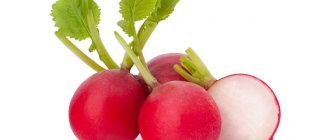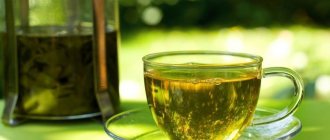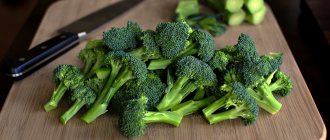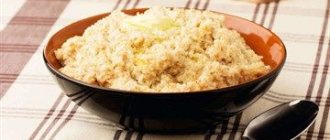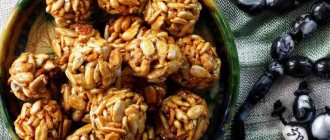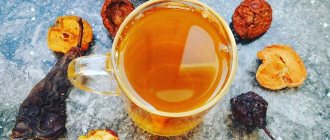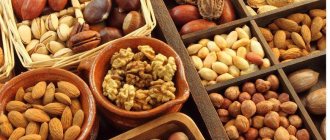11/14/201611/14/2016 Nadezhda Plotnikova 0 comments
A nursing mother will need a lot of macro- and microelements, vitamins and other useful substances to recover and normalize the functioning of the digestive tract after childbirth. Dried apricot, which is considered a good substitute for chocolate and candies, can help with this.
But such a product is too heavy for a newborn’s stomach, which is why dried apricots during breastfeeding should be included in the diet of mothers at a strictly defined time. To avoid mistakes, it is worth learning more about when you can eat these dried fruits and how they are useful.
Composition of dried apricots
The northern provinces of China are considered the birthplace of apricot trees. They were cultivated there long before our era.
Apricots are currently growing in Russia. Juicy fruits for the production of dried fruits are grown on farms in the Far East, North Caucasus and Crimea.
There are 3 types of dried apricots:
- apricot – small fruits dried with seeds;
- dried apricots – dried halves of large fruits, no seeds;
- kaisa are whole dried fruits, but the seeds are squeezed out of them before production.
Most often, it is dried apricots that end up on our table, and they can replace fresh fruits in the winter and off-season.
And if dried apricots are inferior to fresh fruits in terms of the amount of vitamins, the content of minerals in them is an order of magnitude higher, which is especially important for nursing mothers. The composition of dried apricots especially includes:
- calcium;
- phosphorus;
- iron-containing compounds;
- magnesium;
- easily digestible carbohydrates;
- vitamins A, C, E, PP, B1, B2;
- cellulose;
- potassium;
- organic acids (malic, tartaric).
Of course, fresh apricots are also a source of many beneficial substances. Thus, apricot juice in an amount of slightly less than a glass satisfies a person’s daily need for vitamin C.
What are the benefits of dried apricots?
Since every product eaten by a woman ends up in milk in one form or another, the child’s well-being depends on the mother’s diet. Therefore, one can understand the skepticism of new parents about dried apricots during lactation.
Doctors not only do not prohibit, but even directly recommend eating dried apricots during breastfeeding.
Natural sweetness perfectly lifts the mood and helps cope with depression, which often appears after childbirth.
These dried fruits contain a large amount of potassium (5-6 times more than fresh fruits), which, when consumed regularly:
- normalizes the functioning of many internal organs, in particular the heart and gastrointestinal tract;
- removes excess fluid, which helps normalize kidney function and relieve swelling;
- blood pressure decreases;
- strengthens and “calms” the nervous system;
- increases muscle tone.
In addition, thanks to the large number of useful components, dried apricots can be considered a truly healing fruit.
- Dried fruit helps the mother reduce the amount of cholesterol and “raise” hemoglobin, while simultaneously improving the female condition with anemia.
- Dried apricots improve the general condition of the skin and nails, and promote the natural shine of hair, which is especially important for new mothers after bearing a child and the birth process.
- Bright sweet dried fruits are enriched with polysaccharides and fiber, and this significantly improves the activity of the gastrointestinal tract of mothers and newborns. This is why doctors recommend dried apricots during breastfeeding to prevent constipation.
- Magnesium-containing compounds found in dried fruits help lower blood pressure, bringing it to normal levels.
- The vitamin complex returns mothers to their former beauty, promoting tissue regeneration and healing, reducing the severity of stretch marks. This occurs due to the saturation of cells with collagen and elastin proteins.
- A variety of fruit acids and polysaccharides fight various harmful substances - salts of heavy metals, for example. Since mothers’ bodies are cleansed of toxins, this means that the baby gets the most healthy milk possible.
Dried apricots are much higher in calories than fresh fruits or apricot juice. But nutritionists believe that such calories are healthy. And yet, a mother with a tendency to obesity should not get carried away with these dried fruits - everything should be in moderation.
Benefits and harms
One dried fruit contains about the same amount of nutrients as fresh fruit, but in a more compact form. But it contains 3.5 times more fiber, vitamins and minerals compared to fresh fruits. One serving of dried fruit can provide a greater percentage of the daily recommended intake of many vitamins and minerals, particularly folic acid. Only vitamin C is deficient, the content of which decreases significantly during drying.
Dried fruits are an excellent source of antioxidants, especially polyphenols. These substances help improve blood flow, improve digestion, and reduce cell damage from free radicals, reducing the risk of a number of diseases.
Research shows that breastfeeding women who include dried fruits in their diet return to their previous physical shape faster, while consuming more nutrients, compared to women who refuse natural treats.
But there are also disadvantages. The dried fruit contains many natural sugars. Because it loses water during the drying process, the sugar and calories are concentrated into a much smaller package. For this reason, dried fruits contain large amounts of energy and sugar, including glucose and fructose. Content of natural sugar in certain types of product:
- raisins – 59%;
- dates – 64-66%;
- plums – 38%;
- apricots – 53%;
- figs – 48%.
About 22-51% of this sugar is fructose. Consuming large amounts of fructose can have negative health effects, including an increased risk of weight gain, type 2 diabetes, and heart disease. Therefore, dried fruits should be consumed in moderation - no more than a handful per day.
In view of the above, the question arises: is it possible for a nursing mother to drink dried fruit compote at all? Since only certain substances are leached into the water during cooking (some in rather limited quantities), compote is an ideal option for consuming dried fruits.
Possible harm of dried apricots when feeding
Dried apricots should be eaten with great caution by mothers who are breastfeeding. Due to the rich chemical composition of dried apricots, it can negatively affect the well-being of the woman herself or the health of the newborn.
- Dried apricots take a long time to digest, which is why a child’s gastrointestinal tract in the first month of life cannot cope with the high concentration of heavy components that reach the baby with mother’s milk. That is why experts in feeding newborns recommend that mothers consume compote or infusion of dried apricots.
- Dried fruits contain much more indigestible plant residues than fresh apricots. Due to the excessive amount of fiber, mothers, and therefore babies, are at risk for flatulence, intestinal colic and other digestive disorders.
- Orange berries have the ability to lower blood pressure, so they are useful for mothers with hypertension. But women with hypotension must comply by limiting the portion of dried apricots to 40-60 grams per day.
- If the mother has already had to deal with a hypersensitivity reaction to apricot juice, orange fruits and berries (peaches or sea buckthorn), then dried apricots should be completely excluded during breastfeeding.
Thus, dried apricots have a number of limitations. Mothers should stop using them if she has:
- allergies to certain orange fruits;
- diarrhea;
- intolerance to dried apricots;
- flatulence;
- diabetes.
Is it possible for a mother to eat dried apricots during lactation in the absence of such contraindications? It’s not just possible, but even necessary, but only if it is properly introduced into the diet.
Healthy recipes with dried apricots
Below are recipes from dried apricots for guards.
To make dried apricot compote, which is approved for administration when a child reaches ten months of age, you will need:
- 1 tbsp. prunes, raisins, dried apricots;
- 3 liters of water;
- honey or granulated sugar.
Actions:
- We thoroughly wash the dried fruits, then fill them with water and leave for 15 minutes.
- After time, drain the liquid and add the mixture of dried fruits to boiling water.
- Cooking for half an hour.
- Then filter the drink and leave to cool.
- At the last stage of production, we add the sweet component.
Pour the resulting compote into sterile jars and close. After 1 hour, the drink is ready to drink.
Syrniki
Required components:
- ½ kg cottage cheese;
- a pair of eggs;
- 50 g dried apricot;
- small apple;
- 0.12 liters of sour cream.
Manufacturing steps:
- Grind the cottage cheese until lumps are removed, then mix thoroughly with the egg.
- Grate the peeled apple and combine with the curd mass.
- Then add chopped dried apricots.
- From the resulting homogeneous mixture we form small balls, then lightly press them with our hands and drop them into the beaten egg.
- After this, place the blanks in a baking dish covered with parchment.
- Place the pan in a hot oven.
- Cook until appetizingly golden brown at 200°.
We recommend reading: Drying while breastfeeding
You can eat the dish with sour cream.
How should a nursing mother eat dried apricots?
Experts advise introducing dried apricots into women’s menus even during pregnancy.
If a pregnant woman begins to eat up to 100 grams of dried apricots per day, it will be possible to normalize the activity of the digestive tract and relieve swelling, which so bothers expectant mothers. When can a breastfeeding mother eat dried apricot berries? There are specific rules approved by doctors:
- In the first 2-3 months of a child’s life, orange dried fruits should not be consumed in their pure form - it will be more useful to prepare a compote or tincture.
- Many vitamins will remain in the product, and the effect on the gastrointestinal tract will be significantly softened. That is why dried apricot compote will allow infants to avoid colic and increased gas formation.
- As soon as the baby turns 3 months old, and his digestive system becomes stronger, the mother can eat both compote and dried apricots in their pure form, gradually adding them to a variety of dishes.
- Orange fruits are introduced into the menu of nursing mothers gradually and with special care. For the first time, it will be enough to eat two or three berries, and you need to monitor the child’s reaction to milk (possible rashes, colic, diarrhea). If difficulties arise, you should return to dried apricots after a month or two months.
Another common question is when can you give dried apricots to an infant? Of course, in the first month of life such a dish is excluded. But from the tenth month, a baby suffering from constipation can already be given dried apricot compote. This issue needs to be resolved with a pediatrician!
How to choose dried apricots?
Whether dried apricot dishes will be beneficial for mother and baby depends on the correct choice of raw materials.
Shops and collective farm markets offer great-looking berries - bright orange, large, with a shiny surface.
However, appearances, as often happens, are deceiving. The “glossy appearance” of dried apricots indicates that sulfur dioxide is used for drying. It is used to destroy pathogenic bacteria by fumigating the fruits with smoke.
The goal is undoubtedly noble, but such technology is unsafe for breast milk and, accordingly, the child. Naturally, such fruits cannot be eaten by the mother herself, made into compote and subsequently given to the baby.
Dried apricots, dried according to all the rules, usually look unappetizing and unpresentable:
- has a yellowish or brownish tint;
- dried fruits are small in size, round, not oblong;
- denser, drier and tougher than their “brothers” treated with sulfur dioxide;
- but much tastier and more aromatic.
After purchasing dried fruits, they must be thoroughly washed under running warm water and steamed for about a quarter of an hour in boiling water. This preparation removes possible pathogens and chemicals.
How to feed a baby with diarrhea
How should a breastfed baby eat? If the baby receives mother's milk, then the feeding scheme needs to be reconsidered. He needs to be offered breast more often, which will help reduce portions. It is impossible to stop breastfeeding, since together with mother’s milk, all the necessary microelements enter the child’s body, helping to restore upset digestion.
If formula is used to feed the baby, the feeding schedule depends on whether the baby is vomiting or not. But in any case, you need to feed the baby every 2 hours, offering no more than 50 ml of the mixture. You need to return to your usual schedule in a few days, when the acute period has passed.
[node:field_field_doprekl]
If complementary feeding has already been introduced, then from the age of 6 months, the child can eat buckwheat and rice cooked in water during diarrhea. Older children are allowed to give:
- boiled yolk;
- skimmed meat broth;
- jelly;
- meat puree.
Recipes for moms
The taste and quality of mother’s milk depends on a woman’s nutrition, so natural feeding is a rather complicated “science”. You ate something, and the baby feeds with you through milk. That is, both the mother and the child pay for any mistake.
Dried apricots add unusual flavors to familiar dishes: the porridge becomes more aromatic, the meat becomes piquant. The main baby “dish” – mother’s milk – also becomes more palatable.
Dry apricots can be combined with a variety of salads, rice porridge and meat products. Offers several simple recipes that you can prepare to pamper yourself, and, through milk, your little gourmet.
Compote
Of course, compote is not natural apricot juice, but many beneficial qualities are preserved in it. You can give it to a child who has reached the tenth month of life.
To make the dish you will need:
- a glass of dried apricots;
- the same amount of prunes;
- the same amount of dried grapes;
- three liters of water;
- sugar or honey (at your discretion).
Prepare compote as follows:
- You wash the dried fruit and soak it for a quarter of an hour.
- Water is heated in a cooking container, then squeezed fruits are added to it.
- You need to boil the compote for 30-35 minutes.
- Then you must strain the boiled juice through cheesecloth and cool.
- After cooking, honey is added, the juice is poured into jars and sealed.
- The compote should be left to steep for about 60 minutes.
The finished “juice” is suitable for mothers and even small children. You can give a similar drink to your child when he no longer has enough milk to drink.
Cheesecakes with dried apricots
A woman who feeds her child with milk should occasionally treat herself (and the baby, of course) with cheesecakes with dried fruits. To prepare this dish, you must take the following products:
- half a kilo of curd mass;
- 2 eggs;
- medium sized apple;
- 50 grams of dried apricots;
- 120 grams of sour cream.
The process of making cheesecakes looks quite simple:
- First of all, you must grind the curd mass with a fork or blender.
- Break an egg.
- Then you need to peel the apple, grate it and mix it with the egg-curd mixture.
- Dried apricots are chopped and added to other products. Everything gets mixed up.
- Then you should form small balls and dip them into the beaten egg batter.
- The next step is to shape the balls into a flat cake and place them on a sheet covered with parchment.
- Cheesecakes are baked in the oven at a temperature of 200 degrees. After the crust appears, the dish is removed. It is served with sour cream.
Since feeding with milk imposes certain restrictions on a woman, including the consumption of sweets, a nursing mother will definitely like this dish.
After giving birth, mothers have many questions. For example, are dry fruits allowed for nursing women, how beneficial are they for a small child. Dried apricots can help restore strength, normalize the digestive tract, improve mood and restore shine and beauty to the skin and hair. The most important condition is to observe moderation!


